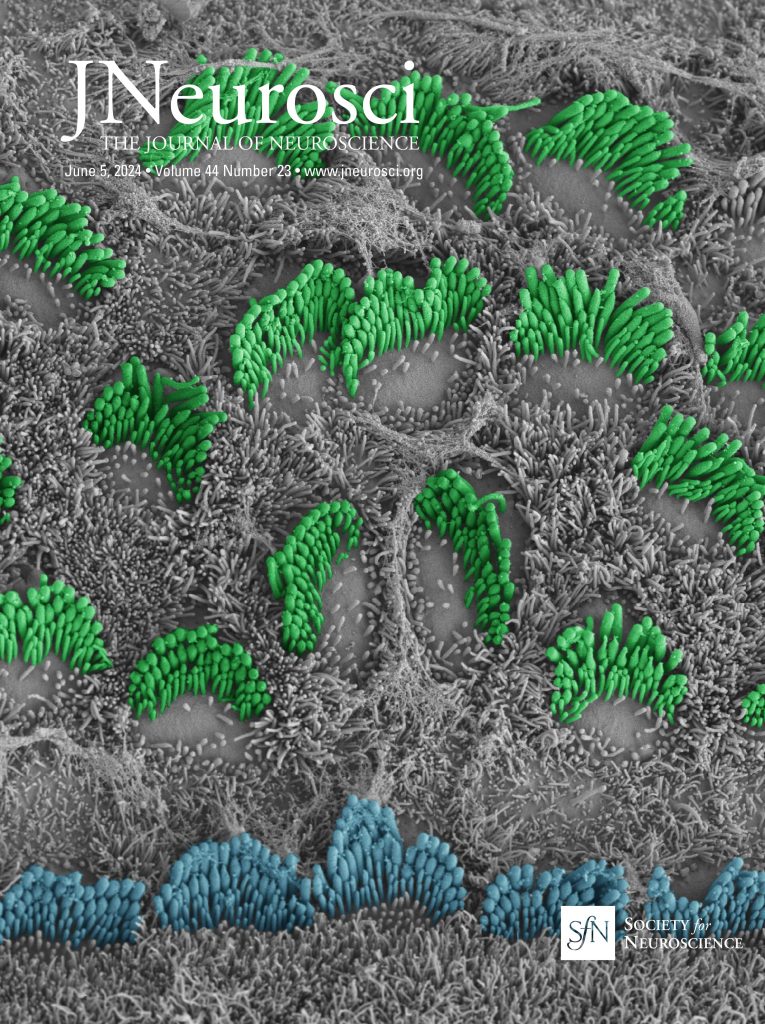How Water Helps Release Repetitive Mental Patterns Effectively

Unlocking the Mind with Water
In a world filled with distractions and stressors, many individuals find themselves caught in repetitive mental patterns. These persistent thoughts can lead to anxiety, frustration, and an inability to move forward in life. Escaping the grips of these mental chains can often feel overwhelming, but a closer examination reveals that a simple yet profound element—water—can play a pivotal role in facilitating mental clarity and emotional relief.
Let’s delve further into how water can assist in breaking these cycles and fostering a more liberated mindset:
- Hydration and Clarity: The human brain is composed of approximately 75% water, making hydration essential for optimal cognitive functions. When we maintain adequate hydration levels, we boost our focus and mental acuity. In Nigeria, under the tropical sun, it’s especially important to drink enough water, as dehydration can quickly lead to fatigue and decreased cognitive performance. For example, students preparing for exams can enhance their concentration simply by drinking sufficient water throughout their study sessions.
- Relaxation: Immersion in water, whether through taking a warm bath or swimming in natural bodies like the River Niger or local beaches, can significantly induce relaxation. This immersion helps to lower stress levels by releasing endorphins, which act as natural mood lifters. Many Nigerians cherish weekend getaways that involve visiting these serene spots, offering a needed escape from daily life stressors and facilitating a refreshing reset for the mind.
- Mindfulness: Engaging with water encourages mindfulness practice. Simply watching the ripples in a pond or listening to the sound of flowing water can help shift focus away from entrenched, repetitive thoughts. In urban areas where hustle and bustle prevail, finding a quiet moment by a fountain or stream can provide a calming distraction. This mindfulness can not only enhance personal well-being but can be a collective act when families spend time together in natural settings.
These benefits are particularly salient in Nigeria, where access to fresh water can vary significantly by region. In communities where clean water is scarce, finding local resources, such as rivers or public swimming pools, becomes crucial. Engaging with these water sources can enhance community mental well-being and foster social connections, essential in an interconnected society.
Exploring the connection between water and mental patterns unveils a refreshing approach to mental health. Amid everyday challenges, embracing water can pave the way for emotional resilience and clarity. As you dive deeper into this topic, consider how integrating the natural world around you can lead to a healthier, more liberated mindset.
SEE ALSO: Click here to read another article

Hydration: The Brain’s Best Friend
Water is more than just a crucial element for survival; it is a key player in enhancing cognitive function. As important as it is to keep the body hydrated, the effects of water on the brain can significantly influence how we process thoughts and emotions. With the brain primarily composed of water, dehydration can lead to a decline in mental clarity and increased susceptibility to repetitive mental patterns.
Among students preparing for exams in Nigeria, hydration can make a marked difference in their ability to focus and retain information. Research shows that even mild dehydration can impair cognitive performance, leading to difficulty in concentrating, remembering facts, and problem-solving. In bustling cities like Lagos, where the climate can be sweltering, staying hydrated becomes essential. Regularly drinking water can enhance not only focus but also overall academic performance.
Immersion in Water: A Pathway to Relaxation
The act of engaging with water goes beyond hydration; it also opens doors to profound relaxation. In Nigeria, many individuals seek solace in natural bodies of water, such as rivers or beaches, to escape the daily grind. Water has a natural calming effect on the mind, often aiding in the release of tension built up from stressful situations.
- Nature’s Endorphin Booster: Immersion in water stimulates the release of endorphins—those feel-good hormones that counteract stress and enhance mood. A visit to the coastline in places like Tarkwa Bay or observing the tranquil flow of the Niger River can serve as a therapeutic escape.
- Coping with Urban Pressure: In cities where the pace of life is demanding, finding water-related retreats, such as local parks with fountains or community swimming pools, becomes an essential practice for unwinding. These interactive locations often foster social connections, enhancing community well-being.
- The Gift of Stillness: Engaging with water offers moments of stillness that can help quiet the mind. The sound of waves crashing or the gentle babble of a stream can provide much-needed mindfulness opportunities, encouraging individuals to disconnect from ruminating thoughts.
Within these instances, water’s capacity to promote relaxation plays a critical role in disrupting repetitive cycles of thinking. By harnessing the calming effects of water, individuals can cultivate a greater sense of peace and emotional equilibrium.
Mindfulness Techniques Involving Water
Another pathway to alleviate repetitive mental patterns lies in the practice of mindfulness, often enhanced through water-related activities. Mindfulness encourages individuals to ground themselves in the present, thereby reducing anxiety and enhancing emotional clarity. Whether through guided mindfulness practices that incorporate the imagery of flowing water or simply sitting by a pool and taking in the surroundings, the effects can be transformative. Mindfulness practices encourage a departure from cyclical thinking, allowing for more innovative thinking and emotional processing.
In a world that often seems overwhelming, water serves as a gentle reminder to pause, breathe, and reset our mental states. As we explore innovative ways to incorporate water into our daily routines, we can gradually diminish the emotional weight that repetitive thought patterns impose upon us.
| Advantage | Details |
|---|---|
| Enhanced Clarity | Drinking water significantly improves cognitive function, helping to dissolve mental fog and repetitive thoughts. |
| Mood Regulation | Hydration directly impacts emotional stability, aiding in the release of negative patterns tied to stress and anxiety. |
| Physical Relaxation | Adequate water intake promotes overall muscle relaxation, reducing tension that contributes to repetitive thinking. |
| Improved Sleep Quality | Staying hydrated assists in maintaining healthy sleep, a key factor in breaking cycles of obsessive thoughts. |
Understanding the correlation between hydration and mental clarity encourages individuals to explore more about the potential of water in achieving mental well-being. Engaging with this topic not only provides peace of mind but also opens pathways to healthier habits. By prioritizing water consumption, individuals may find the key to unlock their mental blockages in a refreshing way. Curious about how simple habits can lead to transformative changes? Stay hydrated and give yourself the chance to experience these benefits firsthand.
SEE ALSO: Click here to read another article
The Therapeutic Power of Water: A Catalyst for Mental Clarity
Beyond hydration and immersion, the therapeutic properties of water offer a multitude of techniques for mental rejuvenation and clarity. Engaging with water not only alleviates the effects of stress but can also actively disrupt negative thought patterns by introducing a fresh perspective on life’s challenges. Exploring these therapeutic activities surrounding water can greatly benefit individuals, especially in bustling Nigerian environments that often induce mental fatigue.
Hydrotherapy: An Ancient Approach to Modern Stress
Hydrotherapy, or water therapy, is a practice rooted in ancient civilizations, now gaining contemporary traction in health and wellness circles. In local health spas across Nigeria, practices such as hydro massages or soaking in mineral-rich thermal baths have emerged as methods to relieve stress and tension. This therapy can unlock the subconscious mind, encouraging physical and mental relaxation, which can be particularly beneficial for breaking free from repetitive, unproductive thought cycles.
- Soothing Inflamed Thoughts: The warmth of heated water can promote circulation, aiding in the relaxation of both the body and mind. Services found in health retreats in locations like Owerri highlight how warm water baths contribute to reducing anxiety levels and engendering a tranquil state that fosters mental clarity.
- Water-Instinctive Practices: In Nigeria, traditional practices such as bathing in nearby rivers during spiritual ceremonies emphasize the cleansing power of water. These rituals serve not only a physical but also an emotional cleansing purpose, reminding individuals of their deep connections with nature.
Aqua Exercises: Releasing Mental Tension through Movement
Another innovative way to use water for better mental health is through aqua exercises. Low-impact activities like swimming or aqua aerobics, popular in cities such as Abuja, promote not just physical fitness but also mental well-being. This type of exercise requires focus on breath and movement, pushing individuals to shift their attention away from distressing thoughts.
- Endorphin Boost: Engaging in physical activity in water releases endorphins, which help alleviate stress and anxiety. Places with access to swimming pools or coastal areas encourage this practice, offering opportunities for individuals to focus on movement rather than persistent worries.
- The Power of Community: Group aqua classes or community swimming events serve to build social bonds that can disrupt feelings of isolation. In the context of Nigeria’s vibrant communal lifestyle, these social support systems become invaluable in reshaping mental health.
Journaling by Water: A Reflection of Self
Incorporating water into mindfulness practices can elevate personal introspection. Sitting near a flowing river, lake, or even a fountain and journaling can help individuals articulate thoughts that can lead to repetitive patterns. The sound of water creates a serene backdrop that encourages deeper reflection, enabling the release of mental baggage.
The integration of journaling with water observation nurtures self-awareness and offers an outlet for emotional release. Many Nigerians find solace in documenting their aspirations and anxieties while gazing upon water, revealing how engaging with this natural element helps to clear mental clutter.
As we delve deeper into the ways that water interacts with our mental processes, it becomes increasingly evident that engaging with this element can provide innovative methods to disrupt harmful repetitive thinking and promote emotional well-being. By exploring these facets of water’s therapeutic qualifications, individuals can chart a course toward enhanced mental clarity and overall life satisfaction.
CHECK OUT: Click here to explore more
Embracing Water as a Pathway to Mental Liberation
In summary, the multifaceted relationship between water and mental health reveals profound pathways for releasing repetitive mental patterns. By engaging in activities such as hydrotherapy, exploring aqua exercises, and incorporating mindful practices like journaling near water, individuals can foster an environment of mental clarity and emotional well-being. For Nigerians navigating the bustling rhythms of urban life, these techniques not only provide relief from stress but also promote a deeper connection to nature, enhancing spiritual and emotional resilience.
As our exploration highlights, the interaction with water isn’t merely about physical refreshment; it is a holistic approach that offers a therapeutic advantage in combating the mental clutter that often plagues our minds. The soothing properties of water have long been acknowledged in both traditional and modern contexts, serving as an essential tool in the quest for mental rejuvenation.
With the rise of wellness initiatives across Nigeria, incorporating these water-based practices into daily routines can significantly enhance mental health. By actively engaging with any of these therapeutic methods, individuals have the potential to disrupt harmful thought cycles, promote mental fortitude, and embrace a clearer perspective on life’s challenges.
As we continue to discover the enchanting synergy between water and mental clarity, it is imperative to consider how this natural element can be more fully integrated into our lives. Whether through communal activities, therapeutic retreats, or simple moments of reflection by a stream, the benefits are boundless and worth pursuing for anyone seeking a profound shift in their mental landscape.


